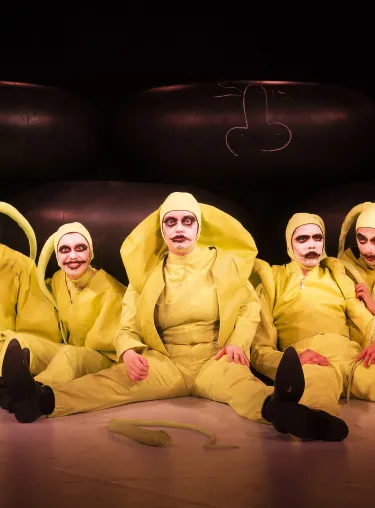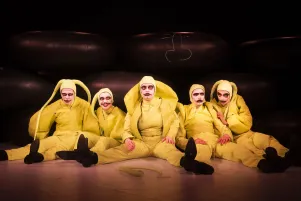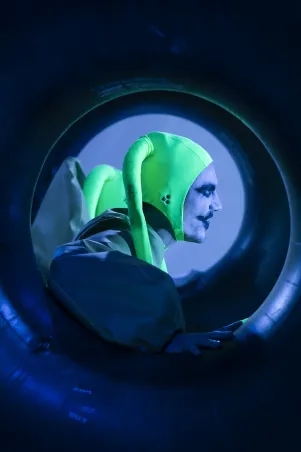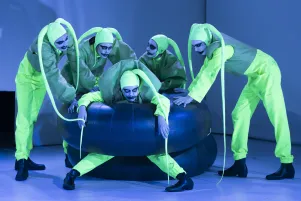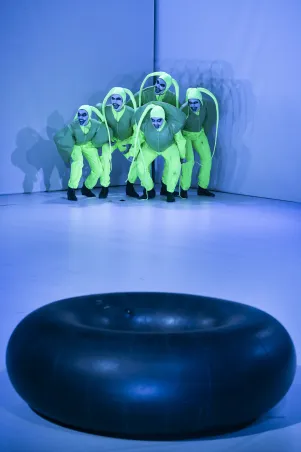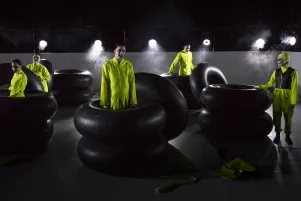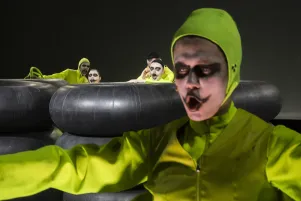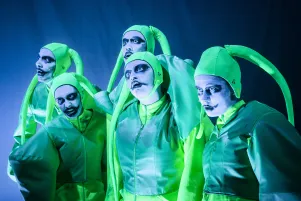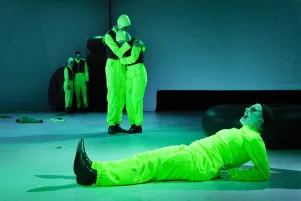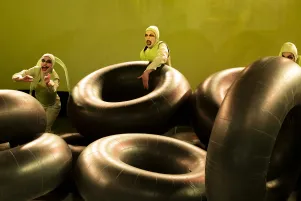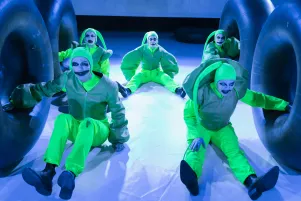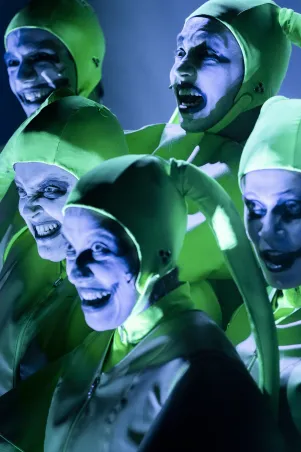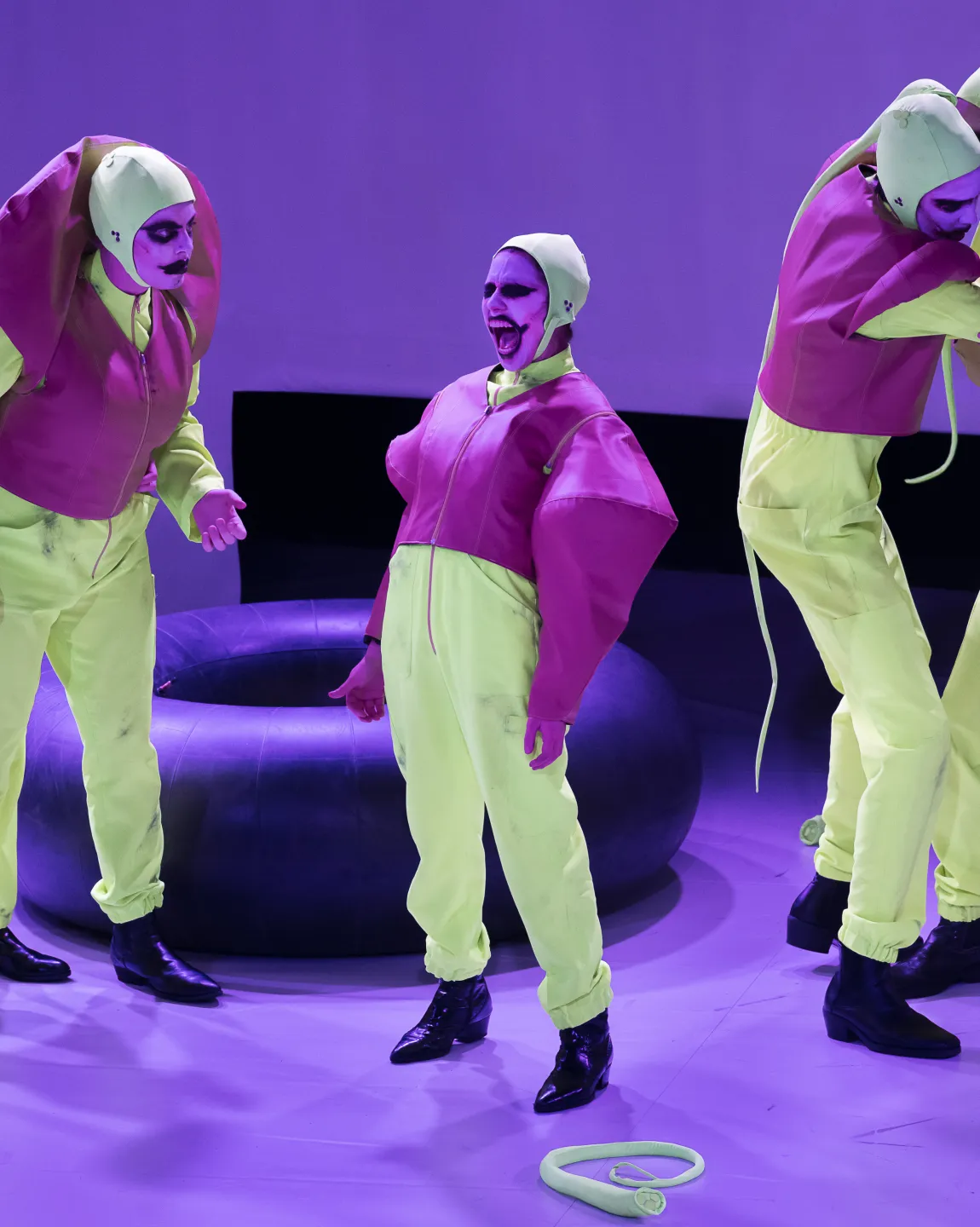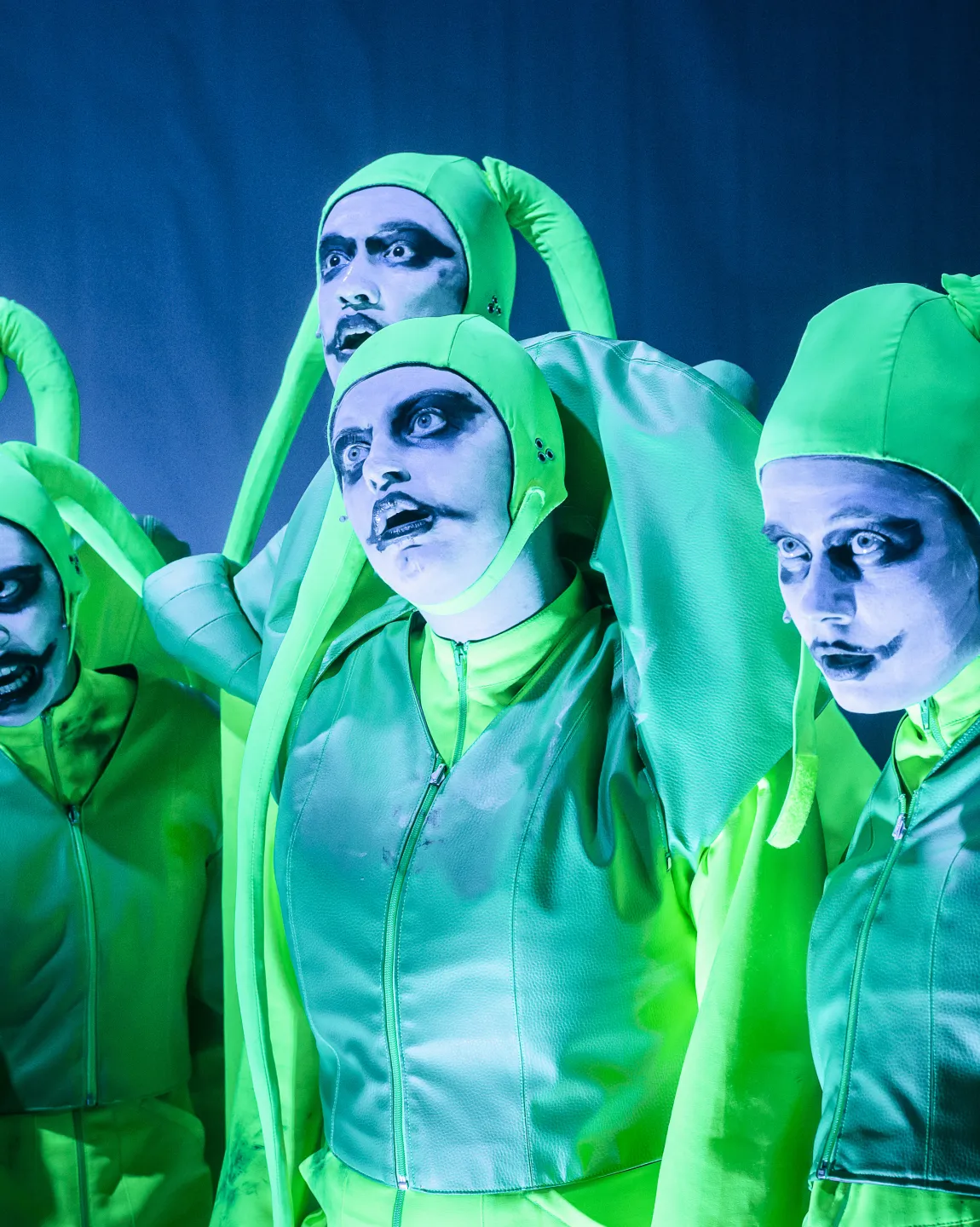Currently no performances
Bored and beyond any prospects of a well-ordered life, Alex and his Drooges roam around London’s suburbs, leaving a trail of devastation behind. When Alex’s style of leadership becomes too authoritarian, the others turn against him: When he kills a woman during a heist, they prevent him from escaping. Alex is arrested and subsequently broken and conditioned by the judicial machinery. Clockwork Orange explores the hazy origins of violence, an issue that we can afford to look at in a much more differentiated manner today, 60 years after the novel’s publication: What does violence mean today? Can we force people to act in a "good" and "right" way? Is violence a legitimate tool to defend one’s own freedom? As self-defence against others? Against a society? Clockwerk Orange was nominated for a Friedrich-Luft Preis as one of the the season 2022/23s best productions.
- Tilo Nest Regie
- Bernhard Siegl Bühne
- Esther von der Decken Kostüme
- Michael Haves Musik
- Benjamin Schwigon, Rainer Casper Licht
- Johannes Nölting Dramaturgie und Bearbeitung
